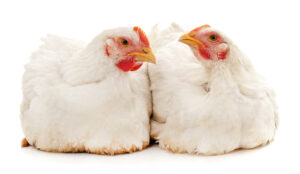Staying current on allergen-related research and issues can help better inform allergen management practices for your business. This month we are featuring two studies, one focused on vegan products and the second on chicken products, and how the labelling of these products can be challenging for consumers with food allergy to make informed decisions.
Research: Vegan and plant-based claims and the risk implications for food allergic consumers.

Read the latest Canadian research on vegan products in the article, ““Vegan” and “plant-based” claims: risk implications for milk- and egg-allergic consumers in Canada”.
The market share of foods labelled as “free from” animal ingredients (e.g. milk, egg) has seen a substantial rise in recent years and has had unintended consequences for consumers with food allergy. To better understand the impact these claims have had on Canadians, Université Laval conducted a research study to understand the purchasing behaviour of consumers with egg or milk allergies in relation to foods marketed as “vegan” and “plant-based,” and to assess the associated allergenic risks.
Consumers with milk and egg allergies look to vegan options as potential safe products. However, not all vegan products are free from these allergens. In some situations, vegan products carry “may contain” statements for milk, which may not be suitable for those with milk allergy. It is crucial for food manufacturers to uphold a higher standard of allergen management to ensure these products are truly safe for consumers with food allergies.
The study concluded that stronger regulatory standards for using these labels, along with an educational campaign clarifying their implications for allergy-related risks, are essential to better inform and safeguard consumers with milk and egg allergies.
Research: Understand the risks of egg proteins in chicken products

Discover the findings of the study “Spent fowl as a source of unintentional egg proteins exposure in Canadian food products”.
The study examined the presence of egg proteins in products made from spent fowl under current manufacturing practices. It aimed to assess the potential risk to consumers with egg allergy and to determine whether precautionary allergen labelling (PAL) should be recommended.
Spent fowl slaughtering and processing operations in two Canadian facilities were observed, with all samples testing positive for egg proteins. The study found that since egg contamination was not sufficiently managed under current good production practices, it is advisable to use PAL for raw spent fowl products.
